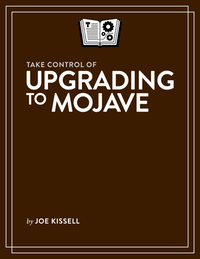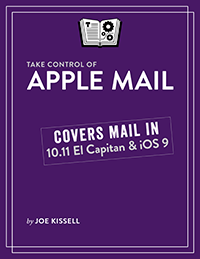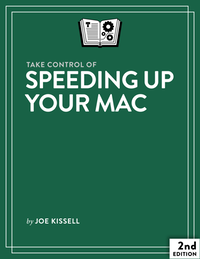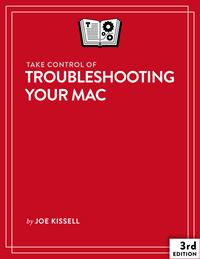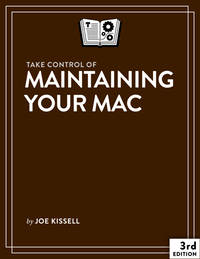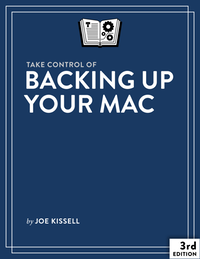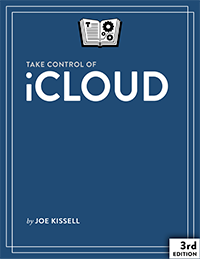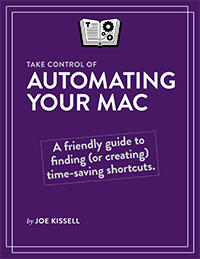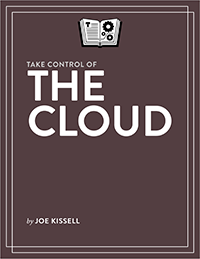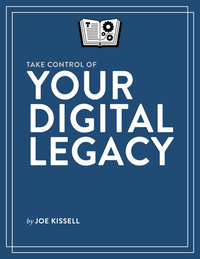What Is Technology, Anyway?
You have to watch your language when you have young kids, or you’ll get yourself in all kinds of trouble. When my son Soren was two, I mentioned the word “technology” and he very innocently asked me, “What technology is, Daddy?” Apart from being amused by his vaguely Yoda-like delivery, I had no idea how to answer him, because it had never occured to me to think about that question in terms a two-year-old could understand.
On further reflection, I realized that even adults—including many who, like me, work in the technology industry—often have only a hazy idea of what “technology” means. In fact, I’ve probably been misusing the word myself more often than not. I’d like to suggest that merely thinking about the word in a different way can make you realize you’re already a technologist.
You Could Look It Up
I used to say that I write books and articles about Mac software. But as the topics I covered became broader and more diverse, I had to keep expanding the term—it was Mac hardware and software, then computers, and by the time the answer became “computers, smartphones, tablets, and related hardware, software, and cloud services” I decided it would be more compact just to say, “Technology. I write about technology.”
I never felt quite right about that answer, though. So I checked a bunch of dictionaries, where I found widely divergent definitions.
Many involve the general theme of using science to solve problems:
The application of scientific knowledge for practical purposes, especially in industry.
—New Oxford American Dictionary, sense 1The specific methods, materials, and devices used to solve practical problems.
—American Heritage Science Dictionary, sense 2The use of science in industry, engineering, etc., to invent useful things or to solve problems.
—m-w.com, sense 3
There were also much broader definitions, such as:
The total knowledge and skills available to any human society for industry, art, science, etc.
–British Dictionary, sense 3A manner of accomplishing a task especially using technical processes, methods, or knowledge.
—m-w.com, sense 2
And narrower ones, such as:
Machinery and equipment developed from the application of scientific knowledge.
—New Oxford American Dictionary, sense 2Electronic or digital products and systems considered as a group: a store specializing in office technology.
—American Heritage Dictionary, sense 2
Here’s one that tries to cram everything in:
The branch of knowledge that deals with the creation and use of technical means and their interrelation with life, society, and the environment, drawing upon such subjects as industrial arts, engineering, applied science, and pure science.
—Dictionary.com, sense 1
And none of the modern senses quite get back to the earliest recorded definition (from 1610) of technology as a “discourse or treatise on an art or the arts” or even the 1859 usage of “science of the mechanical and industrial arts” (hat tip: the online etymology dictionary).
Good grief. With such diverse definitions, “technology” could mean just about anything—or nothing.
Tech Talk
I found it interesting that only one of these definitions (“Electronic or digital products and systems considered as a group”) resembles the way I was using the word, and that’s obviously an extended, somewhat metaphorical sense of the term. It’s not wrong, but it’s pretty limiting.
On the other hand, my friend Rev. Heng Sure, a Buddhist monk who’s also a technology aficionado, often uses the word “technology” when speaking about things like meditation, compassion, fasting, and silence. Sure enough, that fits with a definition like “A manner of accomplishing a task especially using technical processes, methods, or knowledge.” Someone had to figure out the technique, the technical process, for meditating. It must have involved lots of experimentation (ergo: science!), and the result was a manner to accomplish a task. Well, there you have it.
When people say they dislike technology, don’t understand it, or find it frustrating, they’re talking about products other people have made.
I like that way of thinking about technology because it’s empowering. It’s not just products you can buy (and then fight with). It’s something anyone can create or use. You can develop technology that exists entirely in your mind, and you probably do, all the time. My wife and I have technologies for making our kids giggle when they want to be mad. I’ve developed technologies for telling jokes, backing into my driveway, and outlining books.
When people say they dislike technology, don’t understand it, or find it frustrating, they’re talking about products other people have made. Without question, many technology products are irritating—even when they work perfectly, they may not have been designed for your needs or your way of thinking. But once you realize that you create, adapt, and use technology all the time—that technology is not just the devices you can buy but the way you accomplish tasks and solve problems—it becomes easier to picture yourself loving technology. You don’t have to love your computer (not that there’s anything wrong with that). But who doesn’t love solving problems?
Just Do Things
After much hand-wringing about how to explain technology to a two-year old and what the word should mean to grown-ups, I mentioned the problem to my buddy Dave, who gave me a puzzled look, as though he couldn’t imagine what was so complicated about it. He said:
Technology is just the way we do things.
—Dave
That’s brilliant. It was also a kind way of saying, “Dude, you totally overthink things.” Which I absolutely do. Thanks, Dave. Next time I’ll ask you first.
Whether you’re defining technology or using it, don’t make things harder than they need to be. You use technology to accomplish tasks, solve problems, and make your life better. That’s really all there is to it. You start with the thing you’re trying to do. If one technology doesn’t help, you can find or create another one. Maybe it will be packaged as an electronic device you can buy, or maybe the solution is much simpler.
Here at Joe On Tech, I will certainly write about computers and smartphones and software. I’ll tell you how to do specific tasks and solve specific problems with them. But I’ll also expose you to a wide range of other technologies, all with the goal of showing you that technology is what you make it.



